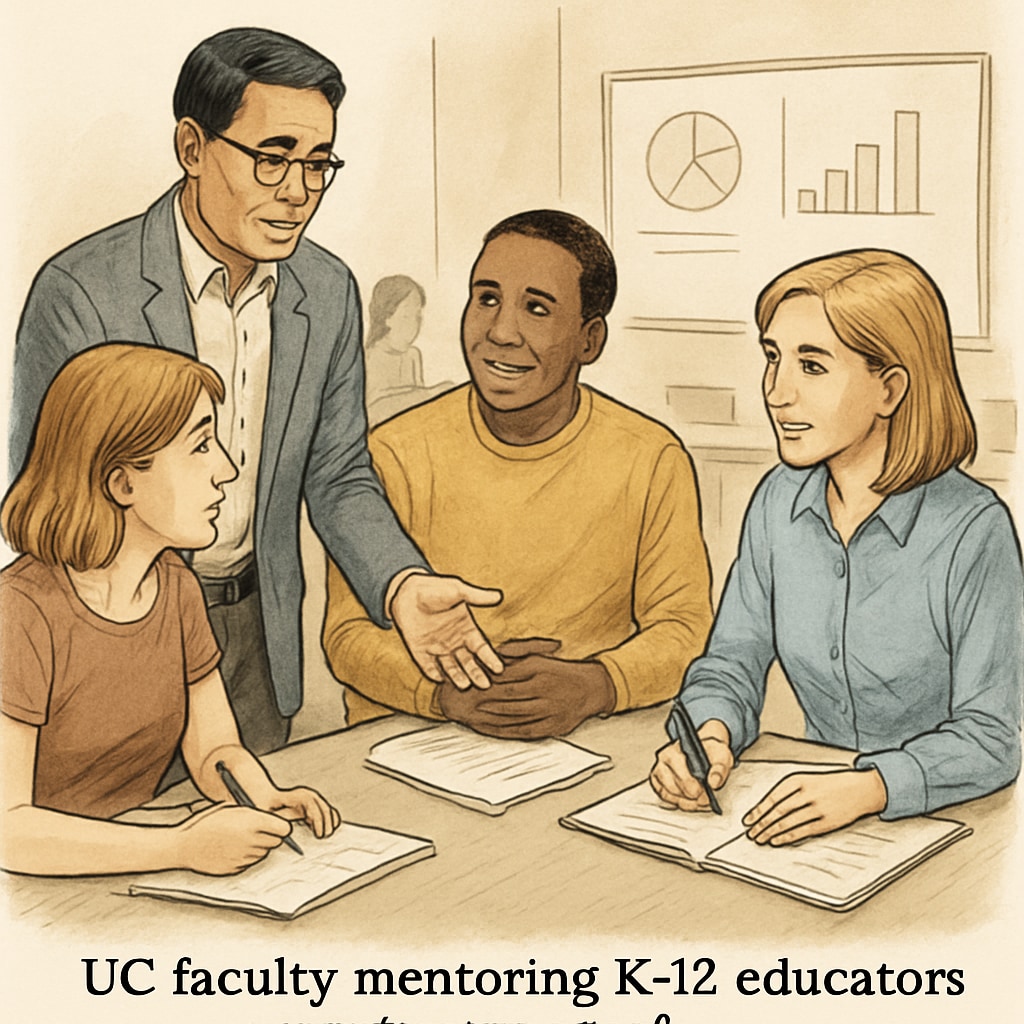When it comes to enhancing the quality of K12 education, leveraging the expertise of higher education institutions can be transformative. The University of California (UC) system, with its extensive network of employees, researchers, and educators, offers a wealth of knowledge that can benefit K12 educators. By learning how to effectively consult University of California employees, K12 educators can gain access to valuable resources and insights that foster a stronger bridge between K12 and higher education.
Why Consult University of California Experts?
Collaborating with experts from the University of California system provides K12 educators with access to cutting-edge research, specialized knowledge, and innovative teaching practices. For example, UC employees, including faculty members, researchers, and program coordinators, often work on projects tailored to addressing educational challenges. By consulting them, K12 schools can stay informed about the latest educational trends and solutions.
Additionally, the UC system plays a significant role in driving educational policy and practices. Its experts frequently contribute to initiatives that improve STEM education, literacy programs, and inclusive teaching strategies. Therefore, building connections with UC employees ensures that K12 educators remain at the forefront of educational advancements.

How to Find the Right Resources and Experts
Identifying the appropriate University of California employee for consultation requires a strategic approach. Here are some steps you can follow:
- Define your goals: Determine what specific expertise or resources you need. For example, are you looking for advice on STEM curriculum development or strategies to improve literacy rates?
- Explore UC campuses: With 10 campuses across the state, the UC system offers a broad range of expertise. Each campus has its strengths, such as UC Berkeley’s focus on innovation or UC San Diego’s contributions to STEM research.
- Utilize online directories: Many UC campuses provide directories of faculty and staff, categorized by department or area of expertise. These directories can help you identify the right individuals to contact.
- Attend events and workshops: Look out for seminars, webinars, and workshops hosted by UC campuses. These are excellent opportunities to connect with potential collaborators.
- Leverage existing networks: If your district or school has connections with UC programs, use these networks to seek introductions to relevant experts.
For more detailed information, you can visit the official University of California website, which serves as a central hub for accessing resources across all UC campuses.
Best Practices for Effective Consultations
Once you’ve identified the University of California employee you wish to consult, it’s crucial to approach the interaction professionally and effectively. Here are some tips to ensure success:
- Prepare thoroughly: Before reaching out, research the expert’s background and work. This demonstrates respect for their time and expertise.
- Be specific: Clearly outline your needs and questions. For instance, instead of asking for general teaching advice, request insights on a particular challenge, like engaging underperforming students in math.
- Follow proper communication channels: Use official email addresses or contact forms provided by UC departments. Avoid informal platforms unless explicitly suggested.
- Be respectful of time: UC employees often have demanding schedules. Schedule consultations at convenient times and keep meetings concise.
- Express gratitude: Always thank the expert for their time and insights. A follow-up email summarizing the discussion can also leave a positive impression.
By adhering to these practices, you can build meaningful relationships with UC employees, paving the way for long-term collaboration.

Building a Bridge Between K12 and Higher Education
Fostering collaboration between K12 education and institutions like the University of California is essential for addressing the evolving needs of students. By consulting UC employees, K12 educators can tap into a wealth of resources that enhance teaching quality and student outcomes. These partnerships also create opportunities for professional development, curriculum innovation, and policy advocacy.
As a result, both K12 and higher education institutions benefit from a shared commitment to academic excellence. For instance, programs like UC’s California Subject Matter Projects (CSMP) provide ongoing support for K12 educators in subjects such as mathematics, science, and history. This mutual exchange of knowledge ensures that educators at all levels are equipped to meet the challenges of modern education.
In conclusion, consulting University of California employees is a powerful strategy for K12 educators aiming to improve their schools’ educational outcomes. By identifying the right experts, preparing for professional consultations, and fostering collaborative relationships, K12 educators can unlock new opportunities for growth and innovation.
For further reading, consider exploring higher education in the United States on Wikipedia to understand the broader role of universities in shaping education systems.


